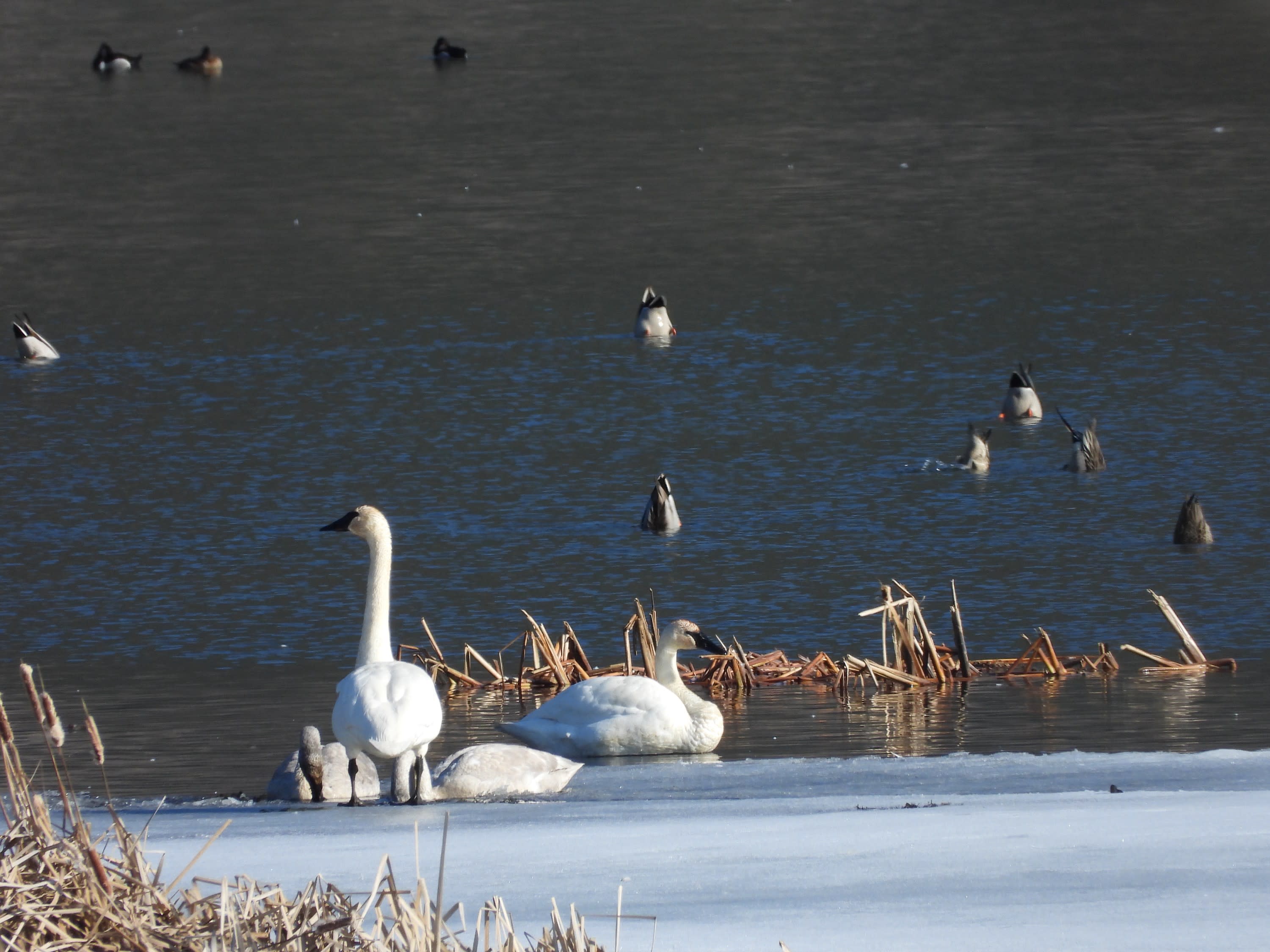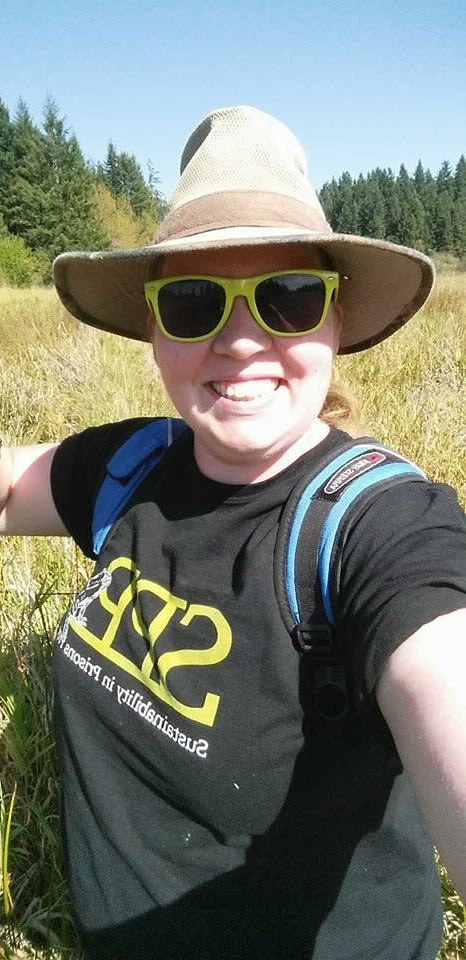Canada Chapter

Daniel Campbell
Daniel Campbell is an environmental scientist with over thirty years of experience in academia, consulting and government. He has degrees from the University of Guelph (B.Sc., 1992), Universiy of Waterloo (M.Sc., 1995) and Université Laval (Ph.D., 2002), but he took an indirect route, mostly working as a consultant in applied environmental sciences between his degrees. He understands applied environmental problems. He taught environmental sciences and conducted research for almost a decade in Laurentian University in Sudbury, often working on environmental research related to mining. He started a one person consultancy, Birchbark Environmental Research Limited in 2018. He has particular expertise in wetland sciences, restoring damaged ecosystems, monitoring environmental systems, teaching environmental sciences to diverse audiences, plant ecology, soil science and analyses of environmental data. He has worked extensively in subarctic, boreal, temperate and subtropical biomes, with some experience in tropical biomes. He has co-authored over thirty scientific papers in international journals. He is fluent in English, French and Spanish.
Gillian Davies
Gillian Davies is a Senior Ecologist & Natural Climate Solutions Specialist at BSC Group, Inc., where her work focuses on climate change and wetlands, working with local communities to develop Nature-based Solutions, particularly wetland, forest, and soil conservation and restoration, and providing wetland peer reviews for Conservation Commissions. She is a Visiting Scholar at Tufts University Global Development and Environment Institute, is Immediate Past President of the Society of Wetland Scientists Professional Certification Program, was the 2016-2017 SWS President, is a co-lead for the SWS Climate Change and Wetlands Initiative and chairs the SWS Rights of Wetlands Section and the WOTUS ad hoc sub-committee. She serves on the International Association for Ecology (INTECOL) Wetlands Working Group. Gillian served on the Massachusetts Healthy Soils Action Plan working group. Gillian has a Master of Environmental Studies degree with a concentration in ecosystem ecology from the Yale School of the Environment, and a bachelor’s degree from Williams College. She is a certified Professional Wetland Scientist, a Registered Soil Scientist, and has received the SWS President’s Service and SWS 40th Anniversary Awards. In her spare time, she and her husband enjoy hiking, mountain biking and skiing.
Becky Dodge
Biologist and wetland restoration practitioner with a passion for ecosystem conservation and science-based habitat recovery. I hold a MSc in Ecological Restoration from SFU and BCIT and a BScH in Biology from Acadia University. My work focuses on collaborative approaches to biodiversity enhancement, habitat resilience, and long-term ecosystem health. I am currently pursuing my Registered Professional Biologist designation with the College of Applied Biology to further contribute to the field.

Brianna Hines
Brianna serves as an Environmental Planner at The Watershed Company with over 10 years of experience performing and managing environmental compliance projects, site investigations and technical field activities. A graduate of the University of Washington’s Wetland Science and Management Professional Certification program, Brianna is a certified Wetland Scientist and Wetland Professional in Training (WPIT) with the Society of Wetland Scientists. She has experience with Federal, State, and local compliance through diverse projects, performing riparian restoration design documentation, biological assessments, and critical areas assessments. In addition, she has performed field data collection, including conducting vegetation surveys, amphibian surveys, habitat assessments, wetland characterizations, mitigation site monitoring (vegetation and hydrology against performance standards) and water quality monitoring for habitat enhancement projects. Brianna is known for maintaining excellent professionalism and interactions with partners while delivering high-quality efficient work. She has experience working all over Washington, and currently resides in Thurston County.
Aamir Khan
Paige Kowal
Paige Kowal joined IWWR in 2017. She is involved in water quality and ecological monitoring projects, supervising field-site and seasonal crew members, and geospatial analyses of wetlands and their surrounding landscapes. She has extensive experience studying coastal freshwater marshes in Manitoba (Delta and Netley-Libau Marsh) through her academic and professional work, and now works primarily on quantifying wetland ecosystem services provided by prairie pothole wetlands.
Paige graduated with her M.Sc. from the Biological Sciences Department at the University of Manitoba. Her thesis focused on using GIS and aerial photo interpretation to analyze historical changes in emergent vegetation extent within Netley-Libau Marsh in Manitoba in response to lake and river hydrology.
Meike Lemmer

Joseph Schubauer-Berigan Ph.D.
Jace Standish
Jace Standish, P.Ag., R.P.F., holds a B.S.F. degree (Forest Resource Management) and a M.Sc. (Soil Science) from the University of British Columbia. Between 1991 and 2020, he taught courses in plant identification, soils, terrestrial ecosystem classification, aerial remote sensing, and Environmental Assessment at the British Columbia Institute of Technology (BCIT). He also served as Program Head for Forestry and for the Ecological Restoration degree program. Jace has worked in natural resource and environmental consulting for over 50 years. Before joining McTavish, he worked with Talisman Land Resource Consultants, Norecol Environmental Consultants, Westland Resource Group, Stewart & Ewing Associates (SEAFOR), and Rescan Environmental Consultants, and as an independent consultant for various public and private sector clients. He has worked in all regions of British Columbia and in Alberta, Yukon Territory, Northwest Territory, Nunavut, New Hampshire, California, Washington, Oregon, Alaska, Guyana (SA) and the Dominican Republic. Jace has worked in the fields of soil survey, ecosystem classification, land capability and suitability mapping, environmental assessment, and permitting. He has authored technical papers on wetland delineation, mining reclamation, forest biomass, deforestation, soil development, soil degradation and ecological classification. He carried out biogeoclimatic ecosystem mapping of Tree Farm Licenses 1 and 41 in northwestern British Columbia and worked with the B.C. Ministry of Forests Research Branch to help implement the biogeoclimatic ecosystem classification. He was Education Coordinator for the Canada-Guyana Interim Forestry Project, Project Leader for BCIT’s Yew Tree Project, and Project Manager for a 3-year study to develop a forest biomass prediction system in BC, for the Canadian Forest Service.

Jordan Thakar

Meghan Ward
Hi there! My name is Meghan Ward and I am a PhD Student at Trent University in Ontario, Canada. I study the effects of invasive Phragmites australis (Common Reed) removal on Great Lakes coastal wetland biodiversity. I have a love for all things slimy and scaley, and I love wetlands!